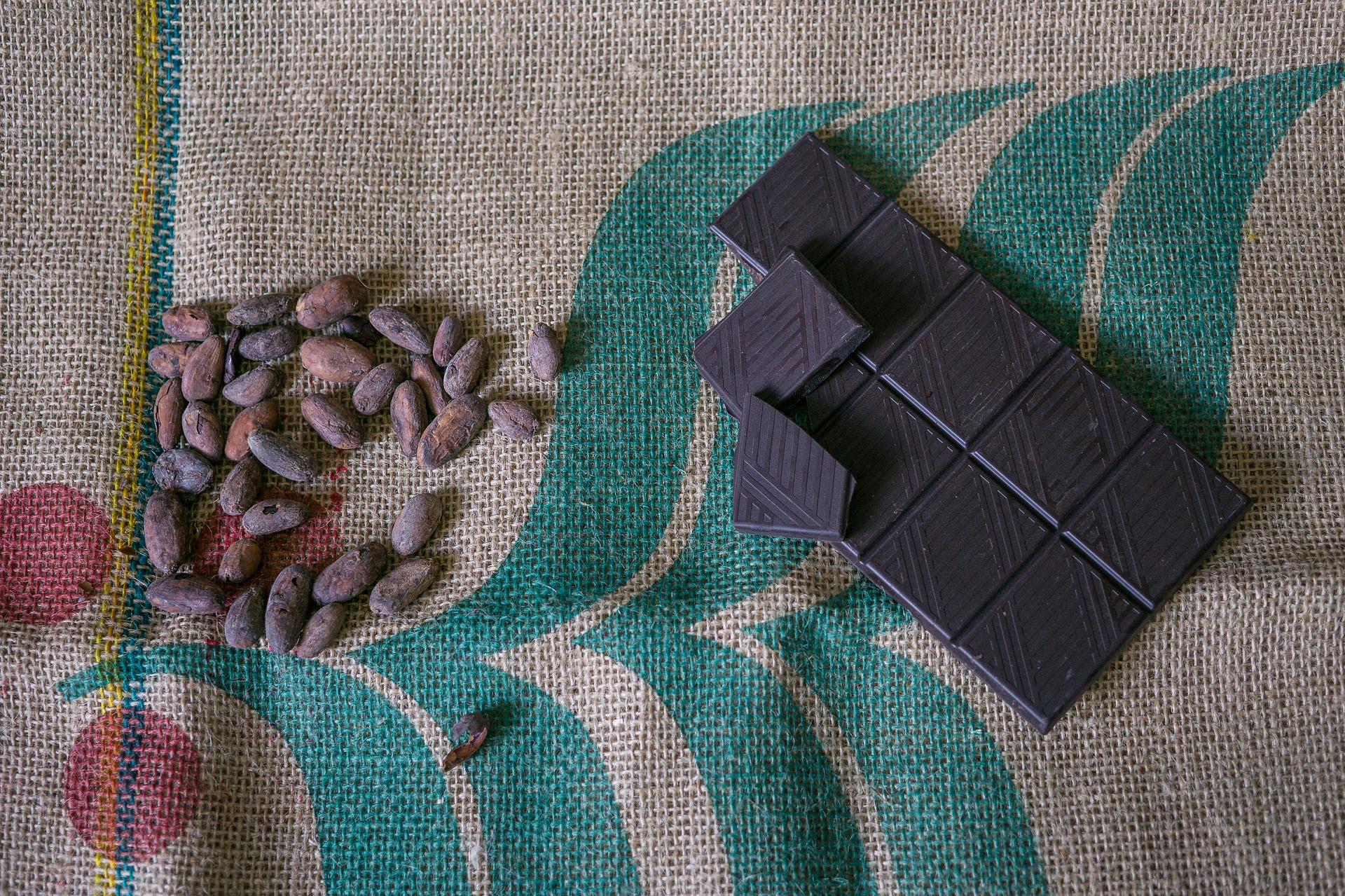Hot chocolate fun, a Fairtrade Fiesta and amazing artwork from talented pupils are among the local attractions aimed at ensuring a worldwide drive to help others remains firmly on the menu.
Fairtrade Fortnight 2020 runs from 24 February till 8 March and once again highlights the plight of cocoa farmers – mainly women – who grow the beans for our favourite sweet treat, yet are often very poorly compensated for their efforts.
Local schools, churches and organisations will be marking Fairtrade Fortnight:
- Lenzie and Kirkintilloch Fair Trade Groups will join forces for a fabulous Fairtrade Fiesta at St Mary’s Church, Kirkintilloch, between 10am and noon on Saturday 29 February. There will be music, games to play and stalls to browse. Artwork from local schools will be exhibited at the event and in the Regent Centre, Kirkintilloch, during the second week of Fairtrade Fortnight.
- Local nurseries will also be taking part in Fairtrade activity at the Regent Centre during the fortnight and there will be an open nursery event there on Friday 6 March, between 3 and 5pm.
- Milton of Campsie Justice and Peace Group will be holding a hot chocolate morning event on Saturday 29 February between 10am and noon at Milton of Campsie Parish Church and hope many local people will join them. Single adult tickets cost £2.50 and family tickets are available at £5.
- Bearsden and Milngavie Fair Trade Group will be taking part in an assembly/debate at the High School of Glasgow Junior School in Bearsden on 27 February.
- Gavin’s Mill in Milngavie is holding a Fairtrade Food Fair to round off Fairtrade Fortnight on Sunday 8 March, between 1 and 4pm. There will be food and drink to sample and one local expert will pair the perfect coffee roasts with the most decadent chocolate flavours – all Fairtrade of course! Everyone welcome.
Liz Ibbotson, of East Dunbartonshire Fair Trade Steering Group, said, "Fairtrade Fortnight in 2019 focused on the people, especially women, who grow the cocoa beans used in our chocolate, which sadly they almost never get to taste.
"Women can be expected to plant and harvest on the farm, look after children, carry water, collect wood, cook, clean and transport the cocoa beans to market - often with fewer rights than men.
"This year's theme underlines the importance of a living income - which means enough money to live a simple but dignified life, paying for essentials such as clothing, medicine and school. The Fairtrade movement believes this is not a luxury but a human right."
The Council works closely with the Steering Group, as well as Fairtrade Town groups in Lenzie, Bearsden and Milngavie, Gavin's Mill shop/café, Silver Birch in Milton of Campsie, church groups and more. Although Kirkintilloch has not yet achieved Fairtrade Town status, it is planned that this will happen in 2020.
Councillor Susan Murray, Vice Convener of the Place, Neighbourhood & Corporate Assets Committee, said, "It's fantastic that Fairtrade Fortnight will once again be celebrated, with a variety of events taking place locally. I hope as many people as possible can show their support.
"This annual campaign is a timely reminder of just how important it is to buy Fairtrade products where possible, helping to ensure that farmers in developing countries receive an income which allows them a decent standard of living.
"The Council is committed to the ethos and values of Fair Trade, and we will continue to work with local communities, organisations, schools, nurseries and traders on this important issue."
East Dunbartonshire has held Fairtrade Zone status continually since 2007.
The Council passed a resolution in November 2016 supporting Fair Trade locally - including a pledge to use such goods wherever possible when catering for meetings and functions.
- In 2019, Fairtrade Fortnight also focused on the plight of cocoa farmers - mainly women - who grow the cocoa beans, but are often very poorly compensated for their efforts.
- Working in some of the poorest countries in the world such as Côte d'Ivoire and Sierra Leone, they struggle to feed their families - far less invest in crops for future years.
- £1.86 is the amount a cocoa farmer in West Africa needs to earn each day in order to achieve a living income. Currently, a typical cocoa farmer in Cote d’Ivoire lives on around 74p a day. Almost all cocoa farmers in West Africa live in poverty.
- A living wage is a salary paid by an employer to a worker which covers a basic standard of life. A company who commits to Fairtrade’s Textile Standards must work towards giving every cotton worker a living wage within six years of starting the scheme.
- But if you’re a smallholder farmer, there’s no-one to pay you a salary and a lot of other factors can come in to play. That’s where the concept of a living income becomes important.
- A living income (defined by The Living Income Community of Practice) is calculated as the net annual income needed for a household to afford a decent standard of living for all members of that household. That means you need to earn enough to eat nutritiously throughout the year, drink safe water and access healthcare. This would also allow you to send your children to school, live in a decent home, save for unexpected setbacks and allow the elderly to retire with dignity.
Follow us on Twitter @EDCouncil or like us on Facebook